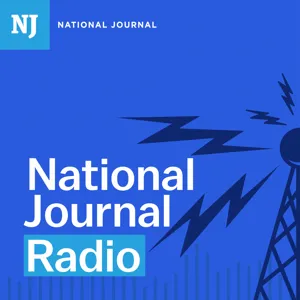Podcast Summary
Strained relationship with Trump leads to Pence's campaign suspension: Pence's decision to suspend his campaign was due to his falling out with Trump and his refusal to overturn election results, which weakened his support among the former president's base, including evangelical voters.
Mike Pence's decision to suspend his presidential campaign can be attributed to his strained relationship with his former running mate, Donald Trump, and his subsequent defiance of Trump's calls to overturn the 2020 election results. This move set Pence apart from Trump's base, including evangelical voters who had initially supported him in 2016. Despite being a popular choice due to his social conservative values, Pence's connection to Trump weakened during their time in office, and his refusal to certify the election results further alienated him from the former president's supporters. This dynamic ultimately contributed to his early exit from the 2024 presidential race.
Mike Pence's Traditional Politics Failed to Resonate with Primary Voters: Incumbents' high approval ratings and established fundraising networks make it difficult for new candidates to compete, despite low approval ratings for Congress and widespread support for term limits.
Mike Pence's traditional brand of Republican politics, reminiscent of old-school conservatism, failed to resonate with primary voters in the current political climate. Despite being the former vice president, Pence was unable to break through in a crowded primary field, as Trump's brand of populism continues to dominate. On a different note, term limits for congressional members have gained popularity due to the low approval rating of Congress and the incumbency advantage, which gives sitting members significant advantages in re-election, including name recognition and established donor bases. Incumbents spent a significant amount of time raising funds, which is a major concern for supporters of term limits. With a 13% approval rating for Congress and 87% of Americans favoring term limits, this issue remains a topic of interest.
The Debate Around Term Limits in Congress: The idea of term limits in Congress is debated for accountability, reducing polarization, but challenging to implement due to incumbents' power and benefits of experienced representatives.
Term limits in Congress is a popular idea, but historically, it's been difficult to implement. Some argue that limiting the number of terms a lawmaker can serve would make them more accountable to their constituents and reduce political polarization. However, it's challenging to unseat incumbents, making it a difficult bet for those who want to run against them. Additionally, some argue that having experienced representatives in Congress is beneficial for getting things done effectively. Despite these challenges, the idea of term limits remains a topic of interest and debate in American politics. The discussion also highlighted that in the 1990s, there was an attempt to implement term limits through a constitutional amendment, but it didn't gain enough support. Overall, the debate around term limits in Congress is complex, and while it may not be an easy solution to political issues, it remains an important topic for those who believe in the potential for change.
Term limits disrupt institutional knowledge in Congress: Term limits could weaken Congress by disrupting institutional knowledge and potentially shifting power to lobbyists and other permanent figures
Term limits for Congress members could potentially weaken the legislative branch by disrupting the institutional knowledge and expertise that builds up over time. This knowledge is valuable for effective lawmaking and navigating complex political processes. Opponents argue that imposing term limits could lead to a power shift towards lobbyists and other permanent Washington figures, as new lawmakers lack the same level of experience and understanding of the system. The constitutionality of term limits for Congress is also a complex issue, making it a challenging political project to implement.
Changing the structure of Congress to use multi-member districts: Instead of one representative per district, larger districts could be established to elect multiple representatives, potentially leading to the election of representatives from different parties and giving a sense of representation to disenfranchised voters
To address increasing partisanship and encourage the development of third and fourth parties, the structure of Congress could be changed. Instead of electing one representative per district, larger districts could be established to elect multiple representatives. This would result in longer lists of candidates to choose from and potentially lead to the election of representatives from different parties. This system, known as multi-member districts, has been used in some states for their lower chambers and was common in the early years of the republic. While it may take some explanation, this system could give a sense of representation to voters who currently feel disenfranchised, particularly in heavily populated states where one party dominates.
Exploring alternatives to increase political competition in US Congress: Nonpartisan primaries can make elections more competitive, but require state-level changes and may not have widespread support
There are various ways to increase political competition and representation in the US Congress, but they require different levels of effort and agreement from federal and state governments. One less dramatic option is to shift towards nonpartisan primaries, where all candidates from all parties are listed on the same ballot, and voters can choose any candidate they prefer. This system, currently used in some states like California and Alaska, has proven to make elections more competitive and change the way candidates run. However, it may not be a quick or easy fix as it would require changes at the state level. As of now, it's unclear if there's significant momentum towards implementing these changes, as past efforts have often stalled.
Dissatisfaction with political system leads to primary reform discussions: Bipartisan efforts to reform primary elections gain momentum due to public frustration with the political process
There is widespread dissatisfaction with the political system, particularly regarding primary elections, and both parties are interested in making changes. The recent delay in choosing a new House speaker after the Republican ousting of their leader is just one example of the frustration people feel about not getting what they want from the political process. Reformists in this space are more hopeful about primary reform than other major changes, and there seems to be more political will to address this issue. However, the specific solutions will depend on the political landscape in each state. Overall, the conversation around primary reform is a bipartisan issue that is gaining more attention and potentially leading to change.



![[19] Countdown to Election Day](https://www.podcastworld.io/podcast-images/an-aarp-take-on-today-3rnad9g1.webp)


